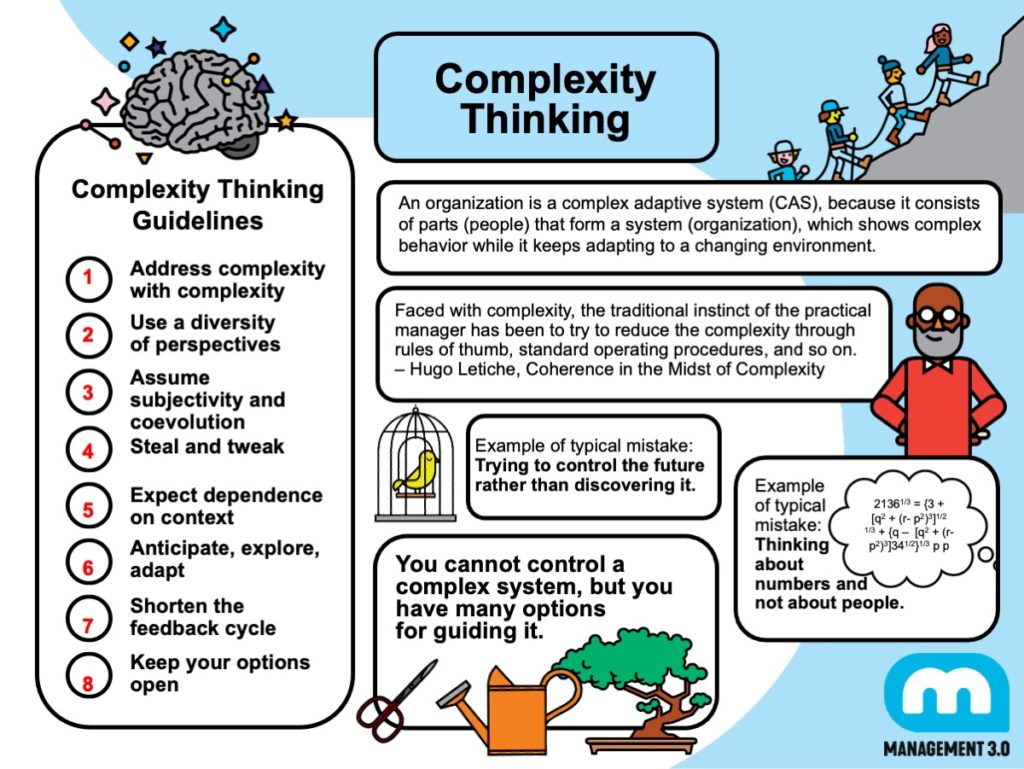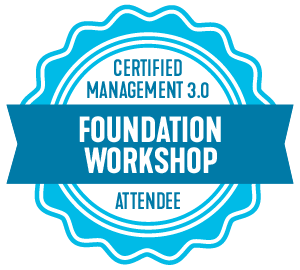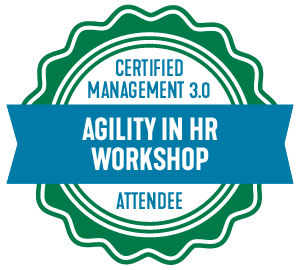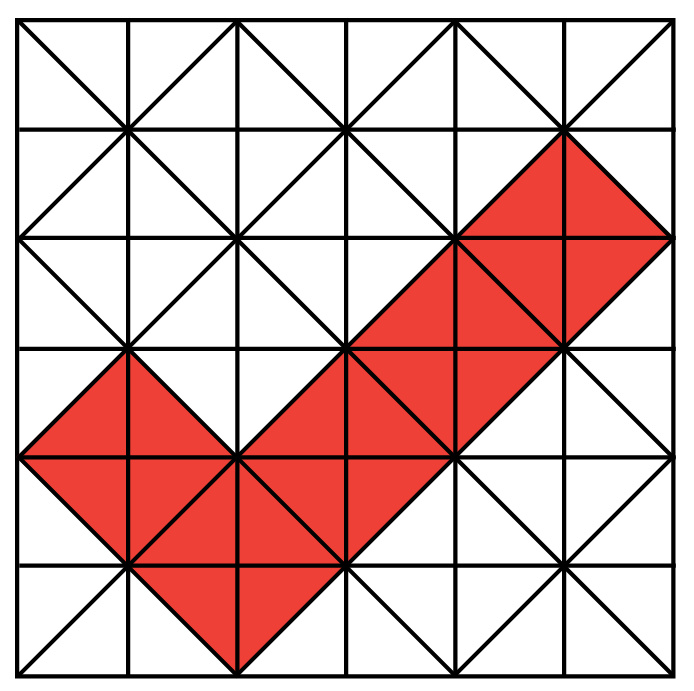This module is about how to deal with increased complexity in a VUCA (Volatility, Uncertainty, Complexity, Ambiguity) world. It as well contains the Management 3.0 Complexity Thinking Guidelines.
What will you learn?
- Why it is important to understand Complexity Thinking in a Management 3.0 context.
- What is reductionism and what are common mistakes when applying reductionism.
- What is a Complex Adaptive System, and examples of Complex Adaptive Systems.
- A complexity model to understand the differences states of a system, and how organizations fit in this model.
- How does VUCA relate to Complexity Thinking?
- The eight guidelines to deal with complexity.
- How to apply the eight guidelines in your organization.
- Understand you can’t control or use frameworks to manage complex systems.
You cannot control a complex system, but you have many options for guiding it.
What will we discuss in this module?
- What can go wrong if you don’t realize an organization is a complex adaptive system?
- A complex adaptive system is always part of a bigger system. What are the boundaries of your team?
- Can you manage or lead a complex adaptive system? What can the role of a manager or leader in a complex system be?





